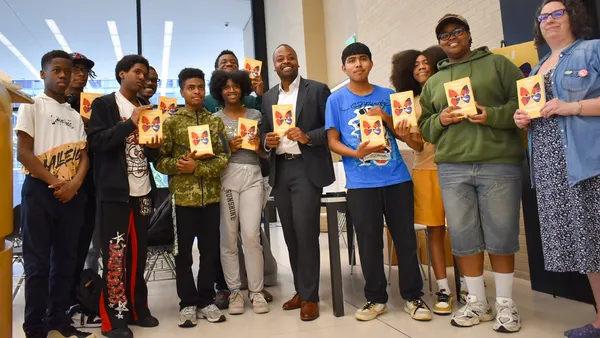Artificial intelligence (AI) is everywhere today, and some are calling it the next revolution in education. From smart tutoring systems to AI-driven grading tools and lesson planning, school districts across the country have started to embrace AI-powered resources and software in an effort to provide more personalized academic support for students, as well as staff – with results that have been, well, mixed.
Understanding AI's Limitations
On the one hand, educators utilizing AI platforms say it has allowed them to expand access to content and personalized learning pathways to meet the unique needs of students, helped them better manage their time, and provided a cost-effective system for tutoring a broad cross section of students at scale.
Still, AI in the classroom faces some practical limitations.
- Fallibility - AI is far from infallible. News stories chronicling the bizarre, almost comical errors by AI chatbots abound, but when student learning or grading is at stake, these errors can have serious consequences, as some districts that were early adopters of AI tools recently discovered. AI tools should be carefully vetted and are no replacement for high-quality curriculum.
- Security - Privacy and security poses another concern. Data breaches that compromise sensitive information put students – and district leaders – at risk. IT administrators need to be part of this conversation from the start to avoid security issues.
- Equity & Accessibility - More than a quarter of low-income houses do not have internet access. AI-powered student support systems put students in households without access at a severe disadvantage.
- Accountability - Even when access is equal, studies have shown that student engagement with fully online learning platforms often trails in-person learning. With low attendance, school districts end up paying for a service that students are simply not using.
- Efficacy – More alarming still is research conducted by the Wharton School that looked at how generative AI affects learning and how humans acquire new skills. It concluded that AI – when used as a crutch – can produce negative educational outcomes.
- Humanity - Although the technology is rapidly advancing, empathy and adaptability are not AI’s strong suits – and these are two qualities students need most at the current moment.
The Old is New: Why Demand for In-Person Tutoring Is Rising
High-dosage in-person tutoring excels where AI falters – and this may be why many school districts are pivoting to in-person tutoring in the 2024-2025 school year.
While no human is infallible, of course, in-person tutors can moderate the use of AI and verify the accuracy of content and facts, providing a layer of accountability in the learning process. Offered at scale in a school setting, in-person tutoring is also accessible to students of all socio-economic backgrounds and tailored for students with diverse learning styles. Attendance for in-person tutoring also tends to be high – ensuring that a district’s investment in student learning isn’t going to waste.
High-dosage tutoring has also been validated as the most effective strategy for combating learning loss. In fact, a recent study of more than 16,000 students across 38 school districts who received HeyTutor’s high-dosage in-person, tutoring services last year found that students saw an improvement of more than 50% (against baseline scores) on ELA and Math assessments over the course of the school year.
Finally, an in-person tutor – as an educator, role model and mentor – can be a powerful force in a student’s development and academic journey. As we discussed in “The Human Difference in High-Impact Tutoring,” a well-trained tutor can help students build confidence and critical thinking skills, ensuring they understand foundational concepts, and tailoring content to their personal interests and preferences. They can also respond more effectively than AI to emotional and psychological needs of students, picking up on signs of frustration, anxiety, boredom, or confusion and adjusting their approach accordingly.
There’s no question AI is a powerful tool for learning and it’s here to stay. But AI is still in its infancy and should be viewed as an enhancement – not a replacement – for live tutors and teachers, with effective guardrails in place to ensure students and teachers get the maximum benefit.
For more insights into how HeyTutor leverages human expertise and technology to provide comprehensive education solutions, visit us at www.heytutor.com.






 Dive Awards
Dive Awards




